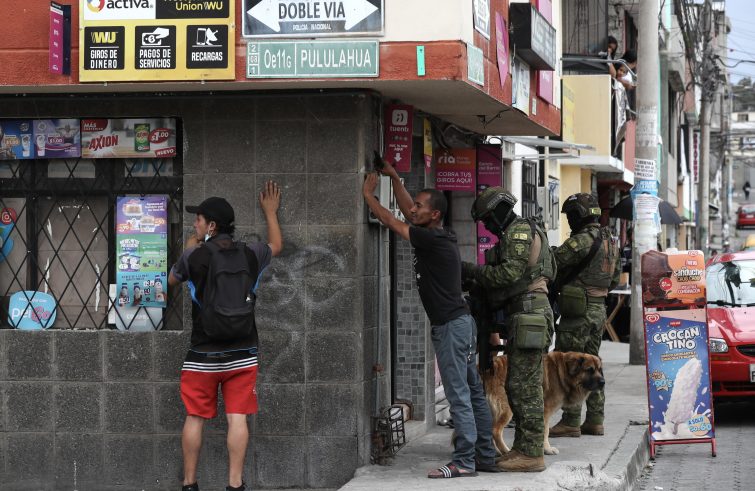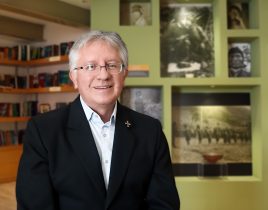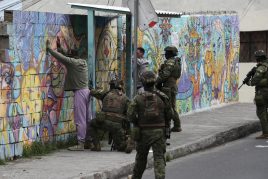
The situation in Ecuador is tragic. Violence is rampant. We discussed the situation with Father Marcelo Farfán (in the photo) 60, 41 years of priestly ministry, Inspector of the Salesians in the South American country and a keen observer of the dynamics underlying the situation of chaos in his country. “We are faced with a serious situation in the country, with an armed conflict raging on the domestic front.”
How are the people reacting?
They are gripped by fear. Schools, most businesses, industries and institutions in the country are operating remotely because of the high level of insecurity. Maybe nothing will happen, but maybe there will be an attack or a hostage situation. ….
 What are the causes of so much violence?
What are the causes of so much violence?
They run deep. One reason is the increasing impoverishment of the population, not only as a result of the pandemic, but also as a result of the fall in the price of crude oil on the international market. Ecuador is dependent on oil. The second reason lies in the misguided policies of the last three presidents in particular, which have weakened the state’s ability to contain drug trafficking and violence, while at the same time disinvesting with cuts in public safety and government agencies dismantled. In addition, financing for education has been reduced.
As a result, street gangs have profited from the impoverishment of families and young people in working-class neighbourhoods.
These young people have no access to jobs or higher education. This has created a breeding ground for local gangs, particularly in the most densely populated areas of Ecuador’s Pacific coast.
There are now 22 organised criminal gangs fighting each other in Ecuador, which is facing an even worse situation than Colombia did in the time of Pablo Escobar.
It is, but – I insist – this is the result of national economic impoverishment, lack of opportunities for young people and disinvestment in education. There is also a fourth factor: the infiltration of the state apparatus by international and domestic criminal gangs, which have corrupted the political class and the police. As a result, Ecuadorians no longer trust them. Unfortunately, Ecuador has become a hub for international drug trafficking, involving Colombians, Mexicans and Albanians.
When Colombia signed a peace agreement with the FARC, who were running the lucrative drug business. The drug cartels analysed the situation, the FARC was dismantled and a number of gangs that wanted to control the drug trafficking routes were disbanded. The easiest option for them was to move to Ecuador, a country with lax anti-drug laws, a corrupt political class and an easily controllable police force. This explains why Ecuador exports illegal drugs to the United States, Europe and the south of the continent, particularly Brazil and Argentina. In this way, Ecuador has become the gold rush of the drug cartels, and we are surprised by what we see here, because it has nothing to do with the Ecuadorian spirit or our way of being. We feel that we have been invaded by a foreign entity.
In which areas are you Salesians involved?
We continue to focus on the education of young people from low-income households. On the coast, we are present in Manabí and in Esmeraldas. We work in one of the areas with a strong presence of organised gangs, and the Salesian confreres are exposed to numerous risks.
We have schools in Guayas and El Oro, where we provide a more hopeful environment for education and create opportunities. In Guayaquil, our efforts are focused on helping street children.
Our centre is located in Monte Sinai, in a working class area of the city. These projects are all about building a relationship with the local community and with the children, to ensure that they do not fall prey to the drug trade and to provide them with some employability skills.
How many Salesians are there in Ecuador?
There are only 132 of us, but it is a very important presence with 22 schools on the coast, in the mountains and in the Amazon Region. In addition, we run a prestigious university with 25,000 students in Guayaquil, Quito and Cuenca, and we run outreach day programmes for young people in vulnerable situations in 7 cities. Not to mention the many community centres. We also work with the indigenous people of the Amazon, the Andes and with Afro-descendants. We do what we can and we add our little grain of sand every day.
*Editorial desk, Popoli e Missione











